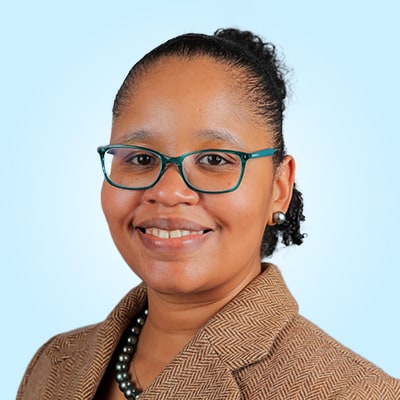The jury is out! Diversity significantly contributes to greater profitability. A 2019 analysis by McKinsey & Company revealed that companies in the top quartile for gender diversity on executive teams were 25 percent more likely to have above-average profitability than companies in the fourth quartile. Additionally, top-quartile companies in terms of cultural diversity outperformed those in the fourth quartile by 36 percent in profitability. That said, many companies are genuinely interested in leveraging diversity for greater financial and social performance. However, various common biases may be interfering with effective recruiting and retention of diverse talent.
During this engaging session, the facilitator will utilize social science, current events, humor, and role-playing to provide participants with a greater understanding of the following:-
● The main types of bias that impact talent management
● Tools to interrupt common forms of bias during the interview process
● How to eliminate bias from the evaluation process for greater retention
● Best practices for more inclusive work environments
- Welcome & Introduction
- Brief introduction and welcome by Ama Karikari-Yawson
- Overview of implicit bias and why paying attention to it matters for lawyers and law firms
- How Implicit Bias Impacts Recruiting and Retention for Law Firms
- Phantom job openings
- Implicit bias in recruiting
- “Fit” tests
- Microaggressions in the legal profession
- Biased performance reviews
- In one law firm study, partners rated the same memorandum less favorably when it was attributed to a hypothetical African-American associate compared to a Caucasian associate with the same qualifications
- Common Forms of Bias in Law Firm Interviews
- Affinity bias/similarity bias
- Confirmation bias
- The halo effect
- The horns effect
- Attribution bias
- Tools to Interrupt Common Forms of Bias in the Legal Profession
- Mindfulness
- Connection
- Prepared questions and notes/recording
- Self-monitoring of mental questions
- Opportunity for advocacy
- Everyday opportunities to promote equity
- Can you change your recruitment efforts to interview more diverse lawyers?
- Can you examine your policies to ensure equity and inclusivity for diverse lawyers?
- Are you setting diversity goals at your law firm?
- Can you review your evaluation and exit systems to ensure you are evaluating lawyers equitably and addressing inclusion concerns raised by lawyers?
- Can you increase the legal services you provide to underserved communities?
- Are you proactively addressing microaggressions in your law office?
- Conclusion and Closing
- How implicit bias thwarts diversity goals
- How implicit bias thwarts diversity goals in the legal profession
- How implicit bias impacts recruiting and retention for law firms
- How to improve the interview process for lawyers considering implicit biases
- Questions & Answers
This webinar is divided into section summaries, which you can scan for key points and then dive into the sections that interest you the most.
Please note this AI-generated summary provides a general overview of the webinar but may not capture all details, nuances, or the exact words of the speaker. For complete accuracy, please refer to the original webinar recording.
*CLE credit is only available to Justia Connect Pros. Not a Pro? Upgrade today>>
Status: Approved
Credits: 1.00 Implicit Bias
Earn Credit Until: November 8, 2025
Status: Approved
Credits: 1.20 Diversity, Inclusion, and Elimination of Bias
Earn Credit Until: September 10, 2026
Status: Approved
Credits: 1.00 Ethics
Earn Credit Until: February 28, 2026
Status: Approved
Credits: 1.00 General
Difficulty: All Levels
Earn Credit Until: December 31, 2025
Status: Approved
Credits: 1.00 Legal Ethics/Professional Responsibility
Earn Credit Until: October 31, 2026
This presentation is approved for one hour of Implicit Bias CLE credit in California, one hour of Ethics CLE credit in North Carolina, and one hour of General CLE credit in South Carolina (all levels). This program has been approved by the Board on Continuing Legal Education of the Supreme Court of New Jersey for 1.20 hours of total CLE credit. Of these, 1.20 qualify as total hours of credit for Ethics/Professionalism, including 1.20 hours in Diversity, Inclusion, and Elimination of Bias. This course has been approved for Minimum Continuing Legal Education credit by the State Bar of Texas Committee on MCLE in the amount of 1.00 credit hours, of which 1.00 credit hours will apply to Legal Ethics/Professional Responsibility credit.
This presentation is approved for one hour of Implicit Bias CLE credit in California from 2025-11-09 to 2026-06-30.
Justia only reports attendance in jurisdictions in which a particular Justia CLE Webinar is officially accredited. Lawyers may need to self-submit their certificates for CLE credit in jurisdictions not listed above.
Note that CLE credit, including partial credit, cannot be earned outside of the relevant accreditation period. To earn credit for a course, a lawyer must watch the entire course within the relevant accreditation period. Lawyers who have viewed a presentation multiple times may not be able to claim credit in their jurisdiction more than once. Justia reserves the right, at its discretion, to grant an attendee partial or no credit, in accordance with viewing duration and other methods of verifying course completion.
At this time, Justia only offers CLE courses officially accredited in certain states. Lawyers may generate a generic attendance certificate to self-submit credit in their own jurisdiction, but Justia does not guarantee that lawyers will receive their desired CLE credit through the self-submission or reciprocity process.

Milestales
Ama K. Karikari, Esq. is the founder of Milestales Publishing and Education Consulting and the author of The Talk: A Black Family’s Conversation about Racism and Police Brutality, Sunne’s Gift: How Sunne Overcame Bullying to Reclaim the Gift, and other best-selling books. Read More ›


